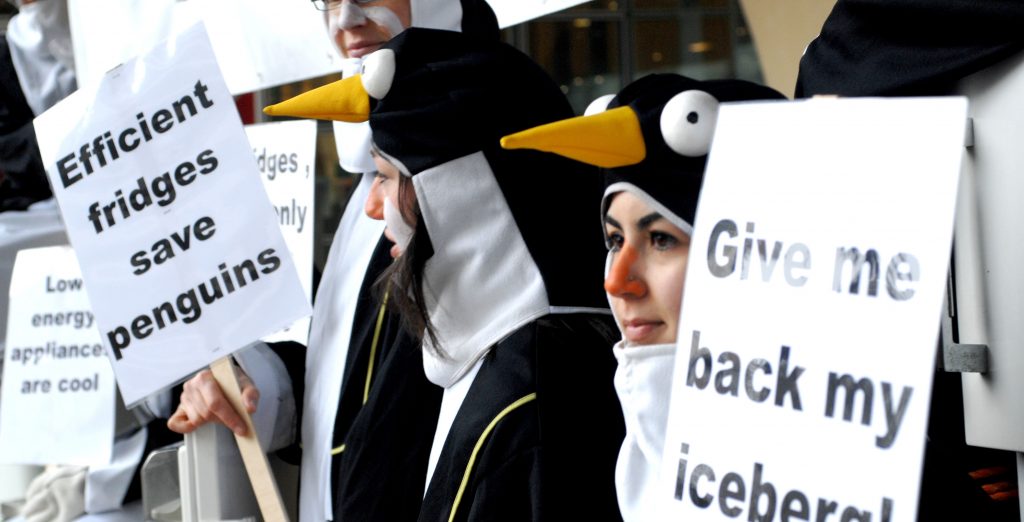Brussels, 12 March – Environmental organisations are urging Europe not to agree weak energy efficiency measures and confusing changes to energy labels for key appliances this week.
Experts from European Union member states will vote on ‘green’ standards for household appliances like televisions and fridges and how to update or introduce new energy labelling of these products. The Netherlands Society for Nature and Environment and Friends of the Earth Europe call on European decision-makers to stop caving in to industry pressure and strengthen the proposals so that Europe can meet its environmental and climate change targets.
Mirjam de Rijk, director of the Netherlands Society for Nature and Environment said “The EU must not go cold on its commitments to combat climate change. Industry is attempting to weaken environmental legislation when stringent standards for the energy efficiency of appliances offer Europe one of the best chances to reduce emissions.”
The Eco-design policy aims to ensure that products sold in the EU use the best available technologies to reduce energy consumption. It represents one of the best opportunities for Europe to fight climate change and drastically cut its greenhouse gas emissions.
The EU aims to become 20% more energy efficient by 2020. According to the Netherlands Society for Nature and Environment and Friends of the Earth Europe, ambitious eco-design rules have the potential to cut Europe’s CO2 emissions by 450 million tons per year by 2020 – equivalent to the emissions of all European cars!
Increased efficiency of products to be voted on this month, including electric motors (11 March), fridges (13 March), televisions (17 March), dishwashers (30 March) and washing machines (31 March) could account for a 100 million ton CO2 saving annually.
However, Magda Stoczkiewicz, director of Friends of the Earth Europe commented: “The draft texts so far lack the ambition to deliver the reductions needed and are being weakened by industry lobbying. Rules relating to televisions, fridges and motors, and the timeline for their implementation, are particularly weak.”
Manufacturers are also attempting to kill the successful ‘A-G’ energy labelling scheme, which would be bad news for consumers and the environment in terms of saving energy and money.
On March 12th environmental organisations will launch the website www.coolproducts.eu to keep European consumers informed about developments in energy efficient appliances.
An Avaaz petition signed by 116,829 citizens from across Europe will be delivered to negotiators calling on them to adopt efficiency standards strong enough to achieve half of the EU’s current emissions reduction targets for 2020.
*****
NOTES:
For more information eco-design and energy labeling
http://www.coolproducts.eu (consumer website, online 12 March)
http://env-ngo.eup-network.de/ (NGO positions on Ecodesign)






